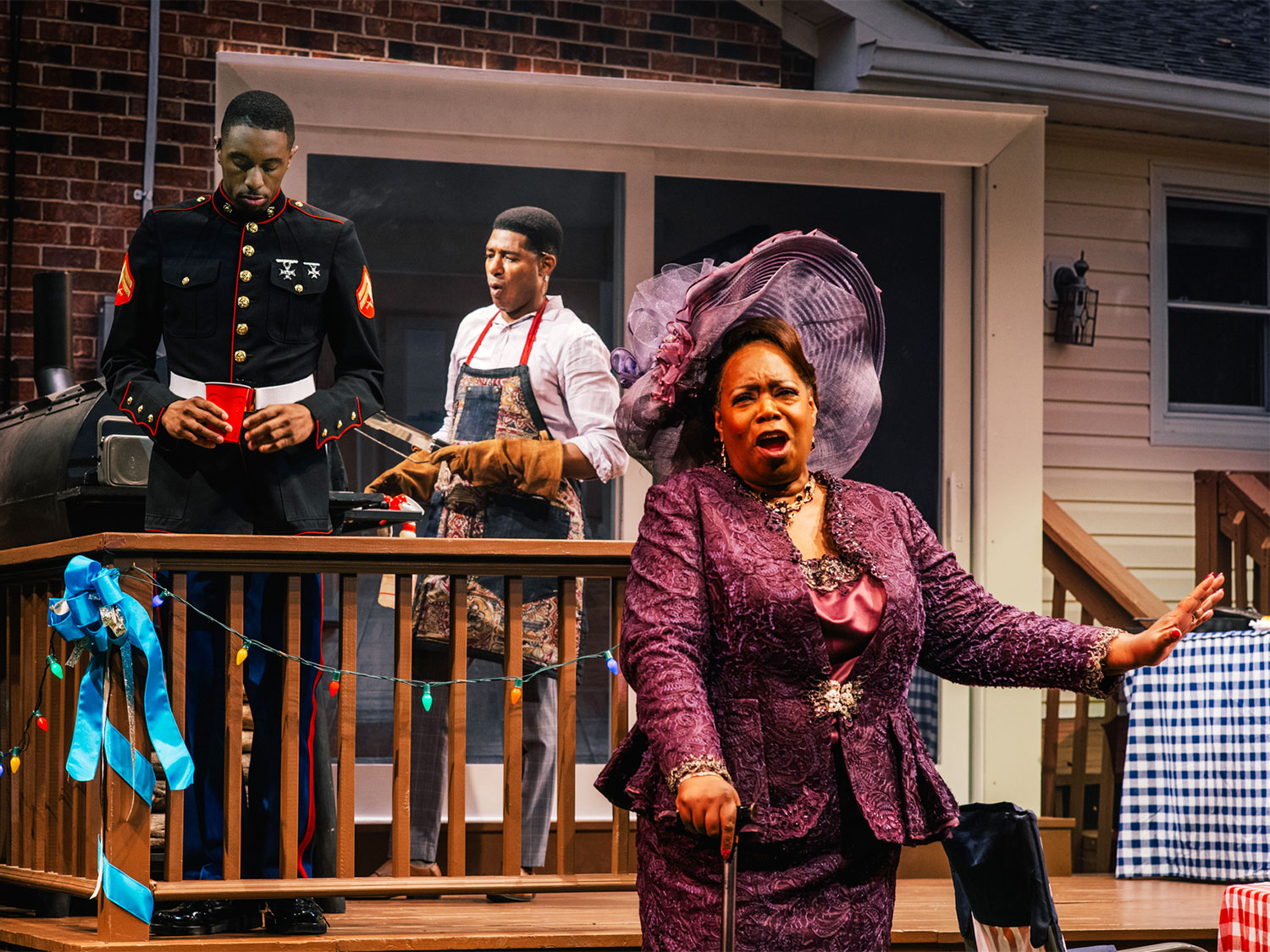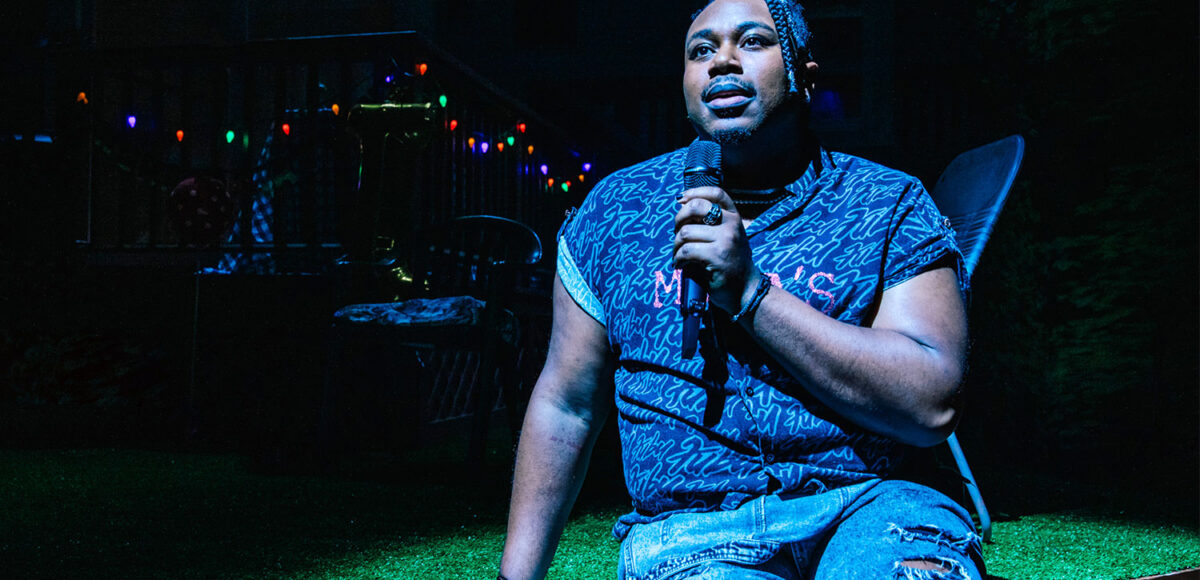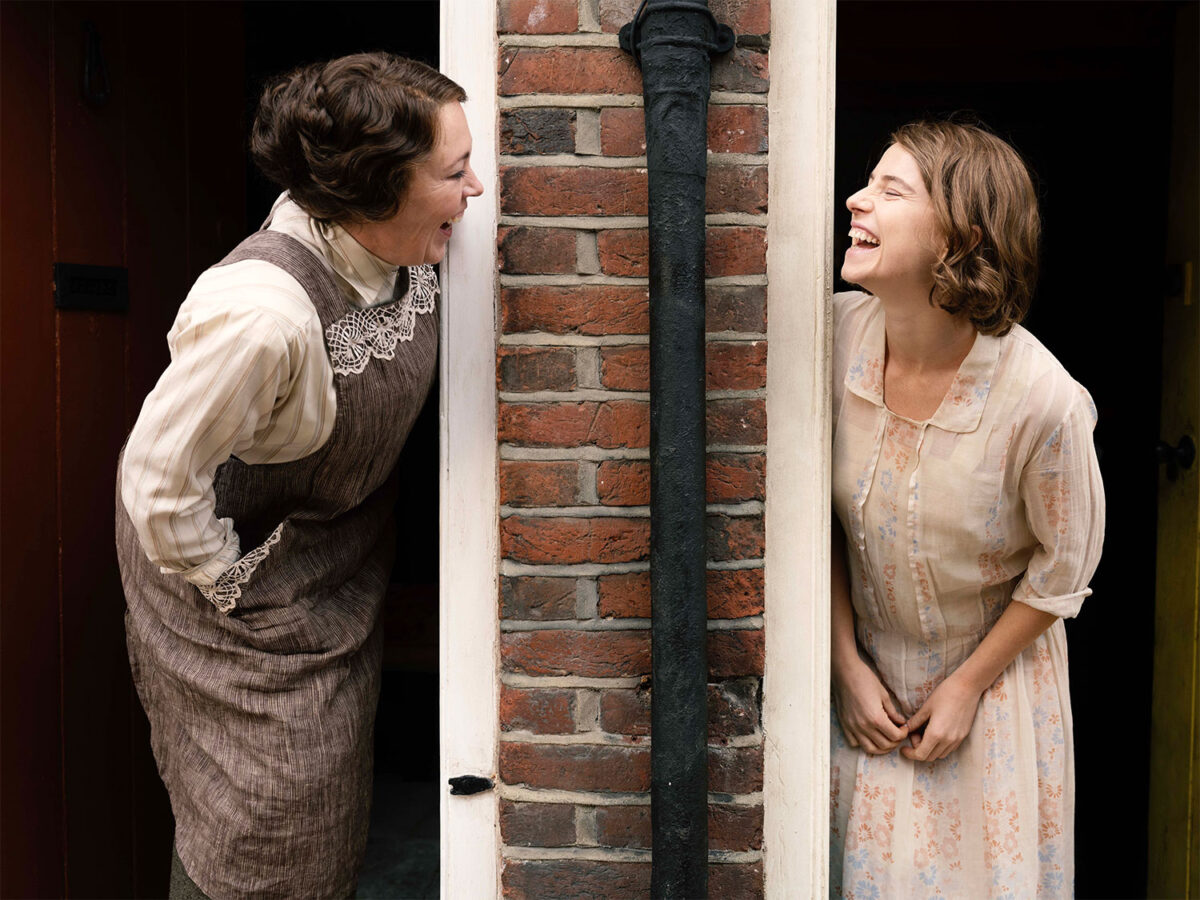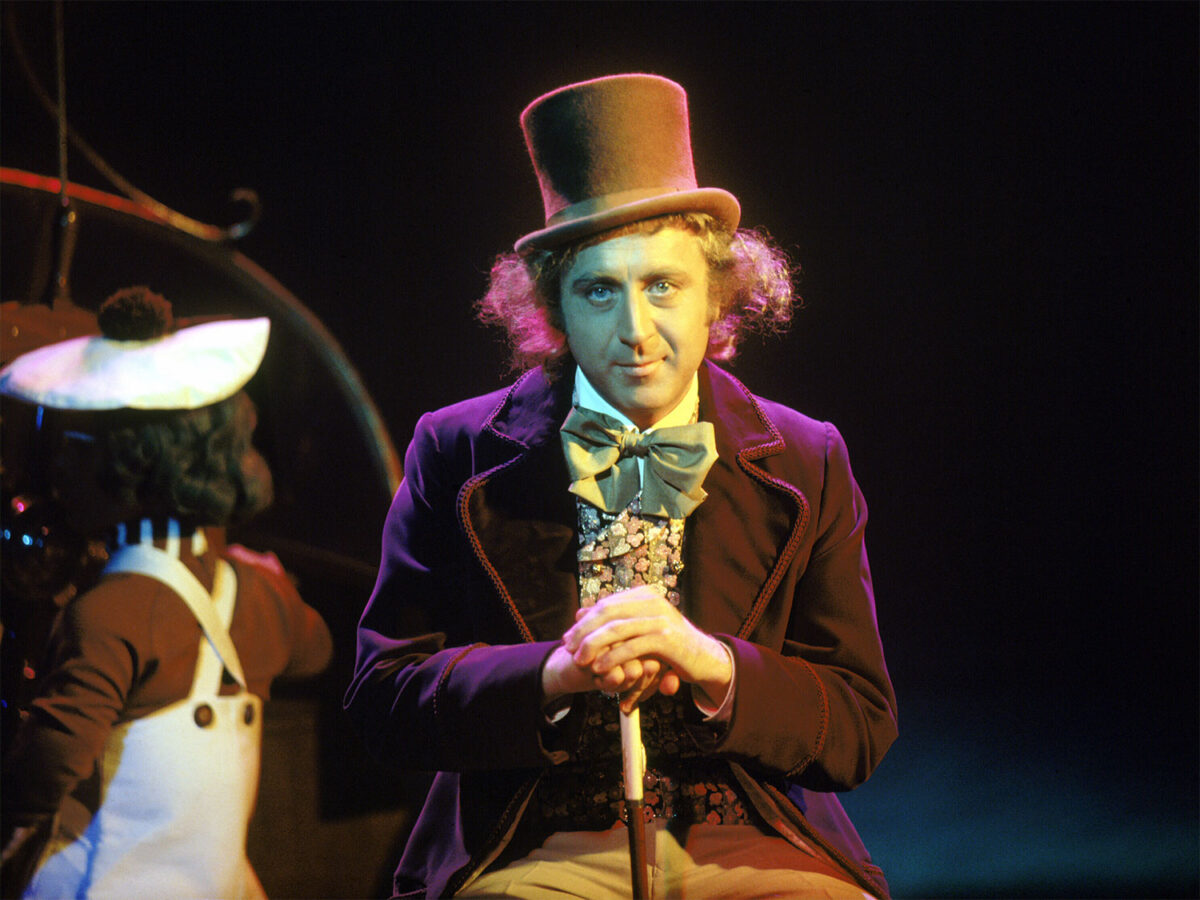Get thee to a nunnery, I mean to the Geffen, as soon as possible to immerse yourself in James ljames’ very (very) loose take on the Shakespeare classic “Hamlet.” That is if Hamlet lived in the South, but not Deep South, and his family kingdom was a barbecue restaurant known for its ribs.
Juicy still lives at home with his mother Tedra, but things have changed significantly. Juicy’s thug of a father has been shanked in prison by someone wielding a sharpened toothbrush. He’d been there quite some time, having slit the throat of a waiter who annoyed him, and it was an ignominious, if apt, way to die. His parenting style was similar, just without the knife and toothbrush. Juicy has mixed feelings about the man who raised him without love or compassion, but he’s more certain of his disappointment in his mother for marrying Pap’s brother Rev a mere week after Pap was put in the ground.
Juicy, known for his level-headed manner, almost a disconnect from situations around him, is mightily torn about the big wedding celebration happening at the house that day. Imagine his surprise when Pap suddenly appears to him, covered by a red and white checked sheet, a tip of the hat to the restaurant in a Casper the Friendly Ghost sort of way. Even ghosts have a sense of humor and off comes the tablecloth, revealing Pap in a Colonel Sanders white suit with rhinestone highlights. You must, he explains, kill Rev. Gut him like the pig that he is. Juicy learned the fine art of swine slaughter from his father, but this is not a skill he has practiced for many reasons. The look on his face makes you think this may not be the time even if it is the place. Conflicted in general, poor Juicy is at an impasse over this command.
Into a puff of smoke and sparkles, Pap disappears just as Tedra, joyful and shaking her fine rear end as she loads up the buffet table, appears. Which dress, she asks Juicy, should she wear? The turquoise or the pink? Obviously, an old hand at offering fashion advice, Juicy signals the turquoise, much to his mother’s delight. Uncle Rev, as in Reverend although it’s clear he worships at the altar of the Weber Grill more than God Almighty, sneers at Juicy. He’s soft, Rev proclaims. He needs to harden up and proceeds to sucker punch him in the stomach.
But Mom has more bad news to share. Rev wanted a bathroom redo; pink was not his color. They’ve spent all of Juicy’s tuition money for the online University of Phoenix courses in Human Resources he’s been taking. Rev has robbed him of his mother and his education, all with a laugh and a self-satisfied smirk. Juicy’s father’s wishes are starting to make sense. Close friend Tio is sympathetic and an ally, having seen the ghost when Pap mistakenly thought he was Juicy.

Photos courtesy of Jeff Lorch
More guests arrive and Juicy has to entertain Rabby, fresh from services in her magnificently large purple feathered church lady hat with matching accessories, and her children Opal and Larry, childhood friends of Juicy’s. Larry, in his Marine uniform looking like a recruitment poster, and Opal, uncharacteristically in a dress she would like to rip to shreds, have their own secrets.
Tensions rise with Rev, and the closely guarded secrets of Juicy’s friends are gradually revealed. Juicy, however, is a puzzle. Soft, yes, but what does that mean? He’s ridden the fence his entire life. Fulfilling his father’s wishes would be a giant leap for him, but at what expense?
At the heart of this inventive, hilarious and very warm play lies a theme of acceptance—its cause, its cost, its satisfaction. Juicy, the perpetual observer, encourages others to be honest, all the while holding back from divulging his reality. It’s also about the cost of authenticity because none of the four young people has had the courage to step out of the closet that others have pushed them into.
“Hamlet” was a bloodbath; “Fat Ham” is not. The ties to Shakespeare’s classic are knowing, irreverent and only in passing. On occasion, Juicy will recite a passage that fits appropriately but if Opal is Ophelia, she doesn’t die and her love interests lie elsewhere. She hates wearing a dress but likes those who do. Larry is the Laertes whose care and concern over his sister and Juicy disguises where his interests lie in agonizingly stoic style. In truth, she wants to wear his uniform and he’d like her dress. The similarities between Rev and Tedra to Claudius and Gertrude are definitely there, and Rabby in full “Sunday going to meeting” regalia is a hilarious Polonius who has no more clue as to who her children really are than Polonius’s grasp on reality in “Hamlet.” Tio, the comic relief in a play rife with it, is a would-be Horacio, having also seen the ghost—but he is an unreliable source because he’s almost always high on something.
ljames heightens the humor in his use of stereotypes, used primarily in the “adult” characters. Tedra brings the house down with her booty-shaking dirty dancing and karaoke (shoot me please!) that underscores a satire of class and archetype. Similarly, Rabby is cut from the same over-hyped cloth, right down to the feathers in her hat. Rev and Pap, however, are thugs, one subtle, the other not so much. It is the second generation, except for the perpetually stoned Tio, who presents real-world identity problems uncluttered with cliché. They are the heart and soul of this outrageous comedy in their search for acceptance and authenticity. It is, however, the still-conflicted Juicy who is left searching. Or maybe that’s my interpretation, and he has always known who he was and needed no social approbation.

The Geffen was extraordinarily lucky to book this acclaimed Broadway play that got its start at the storied Public Theater and won the 2022 Pulitzer Prize for drama. Most of the cast are reprising their roles from the original, and it makes you long for more transfers like this one. Chris Herbie Holland as Tio has the least to do, but then that was Horatio all over, wasn’t it? Played as a clown, more like a combined Rosenkranz and Guildenstern on steroids, he’s primarily expositional. Matthew Elijah Webb, an understudy in the original run of the play, is Larry, an enigma hiding his true self. Uninteresting almost throughout, his lack of character may have been by design because he closes the show and brings down the house. Adrianna Mitchell is Opal, the girl who likes girls but has a hard time expressing herself. Opal is a character who starts the tsunami that ends the play. Like Ophelia, her self-questioning opens up an avenue that is followed by others. Benja Kay Thomas is Rabby, the clueless church lady. Playing a definite type, one that adds to the underlying absurdity, she eventually rises above stereotype but never loses the fun.
Billy Eugene Jones plays both Rev and Pap. Jones plays them with depth, relatable ugliness and command of the stage. His dual roles are the source of several jokes, but his ability to reveal a bully with nuance is superb. As shown in his recent star turn in “Purlie Victorious” as Gitlow Judson on Broadway, Jones’s skill at transcending deliberate stereotypes inherent in a script is masterful. Nikki Crawford, Tony-nominated for her performance as Tedra, is a show-stopper, literally and figuratively. The moment she comes on stage in those tight denim shorts you know that Shakespeare’s play has been reimagined from the bottom up, so to speak. Her elocution and every action emphasize her distance from her son as she opts for sex over love and loyalty.
It is Marcel Spears, Juicy, who is the heart and soul of this family dramedy. Spears, a seasoned theater and television actor (“The Neighborhood”), has a command of nuance and subtlety that makes this comedy of the absurd take flight. It is on his ambivalence that all the other characters and actions turn. Spears makes you understand that the accusation against Juicy of being “soft” is double-edged. His “soft” is thoughtful and pivotal. Spears would actually make a great Hamlet.
Now playing at the Geffen Playhouse through May 5. Performances take place Wednesday through Sunday with matinees on Saturdays and Sundays. Runtime is 100 minutes without intermission.
The Geffen Playhouse is located at 10886 Le Conte Ave., Los Angeles.







